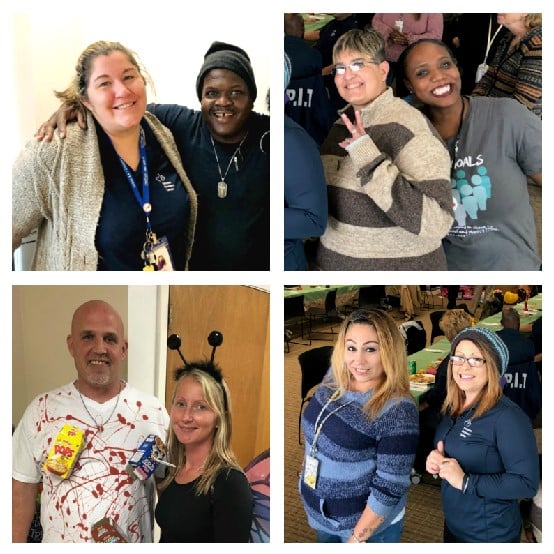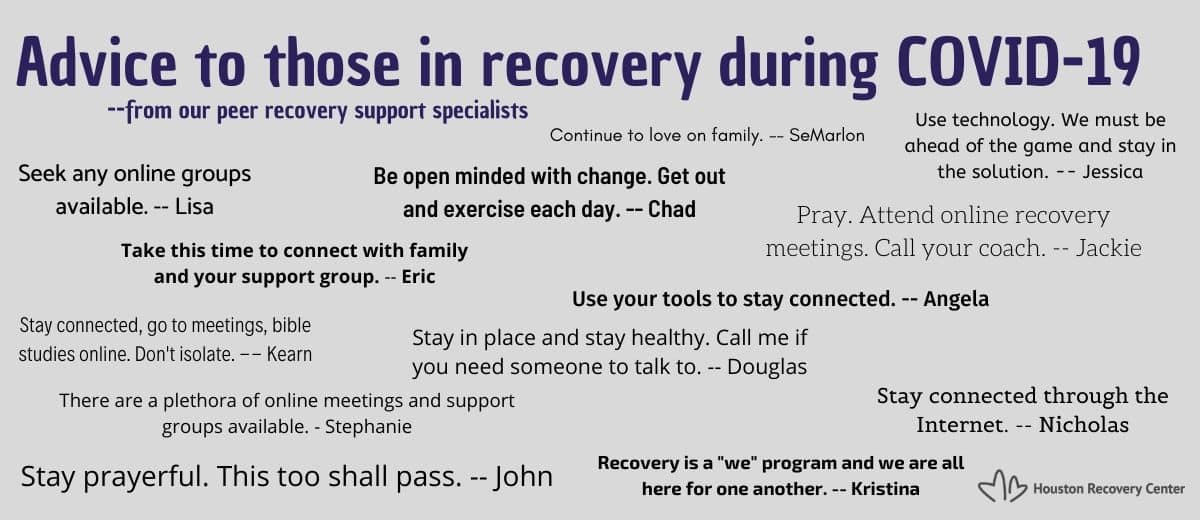How Our Peer Recovery Support Specialists Continue Serving Clients from Afar
Recovery thrives on connection. In social isolation, client experiences range from fear that they can’t get the necessary help they need, to struggling to maintain sobriety, to fighting for sobriety and protecting their health. Many have major health problems. In crisis, it is not uncommon to see people increase their use of substances and those in recovery triggered by increased stress can return to use without proper social support.

Pre-COVID-19: Happy days in the past when we could connect and hug our fellow recovery support specialists.
The coronavirus pandemic has forced our recovery support specialists (RSS) to pivot and provide essential social connection in an all virtual environment: phone calls to check on clients, virtual recovery meetings, virtual one-on-one meetings, text follow-ups, email check-ins, and advocacy over the phone. For some clients, the RSS’s have become their sole lifeline.
What does staff report?
“Some clients are asking for prayer and calling during depressed moments,” says Jackie Williams. “They are going into relapse and depression, but they are willing to work the 12-step program to regain sobriety.”
“I’m giving telephone support and letting clients know that I am available for recovery support, online resources, and whatever their needs may be,” says Lisa Rizo.
Rizo says most of her clients are responding with appreciation and are grateful that Houston Recovery Center coaches are still available to them during this time.
Many rely on jobs in the service industry and small businesses which have been forced to close. Kearn Ardoin says most of her clients are not working. “They are afraid to ride the bus,” Ardoin says. “And with so many people out of work, they’re afraid they won’t find a job due to their criminal justice background. They are losing hope.”
“Some of my clients have been dealing with depression, and I have had to reach out to partners to get feedback,” Tufts relates. “I have been doing my best to encourage them and in doing so, I encourage myself. I let them know I’m still here for them.”
Douglas Hinton works on streets “out amongst the crowds” assisting the homeless. It’s hard for him to step back. “With social distancing in place, I can’t get out there and talk to my people,” Hinton relates. “I saw one man downtown walking without shoes and talking to himself. My thought was to go see what’s going on with him because I knew he was mentally unstable.” Protection is key. Without a mask he wasn’t able to provide assistance. “This pandemic is real. Keep yourself safe.”
Kristina Davis says she feels powerless since Frontlines, an opioid overdose intervention program, is not able to go into the ER to help people right now. “Helping others brings me so much joy,” she relates.
Living with hope
Despite the challenges, our recovery support specialists are living examples of hope.
Eric Richardson emphasizes the need to stay focused. “Just like addiction, this too shall pass,” he says.
Jessica Yeager encourages people to look at the positives. “If you’re going to go through it, grow through it,” Yeager relates.
Many rely on their faith to see them through tough times.
“Trust in the Lord,” says John Turner. “He knows what He is doing.” And Williams says to stay prayed up!
“Do not lose hope,” Chad Armstrong says. “We’re in this together, and together we are better.”
